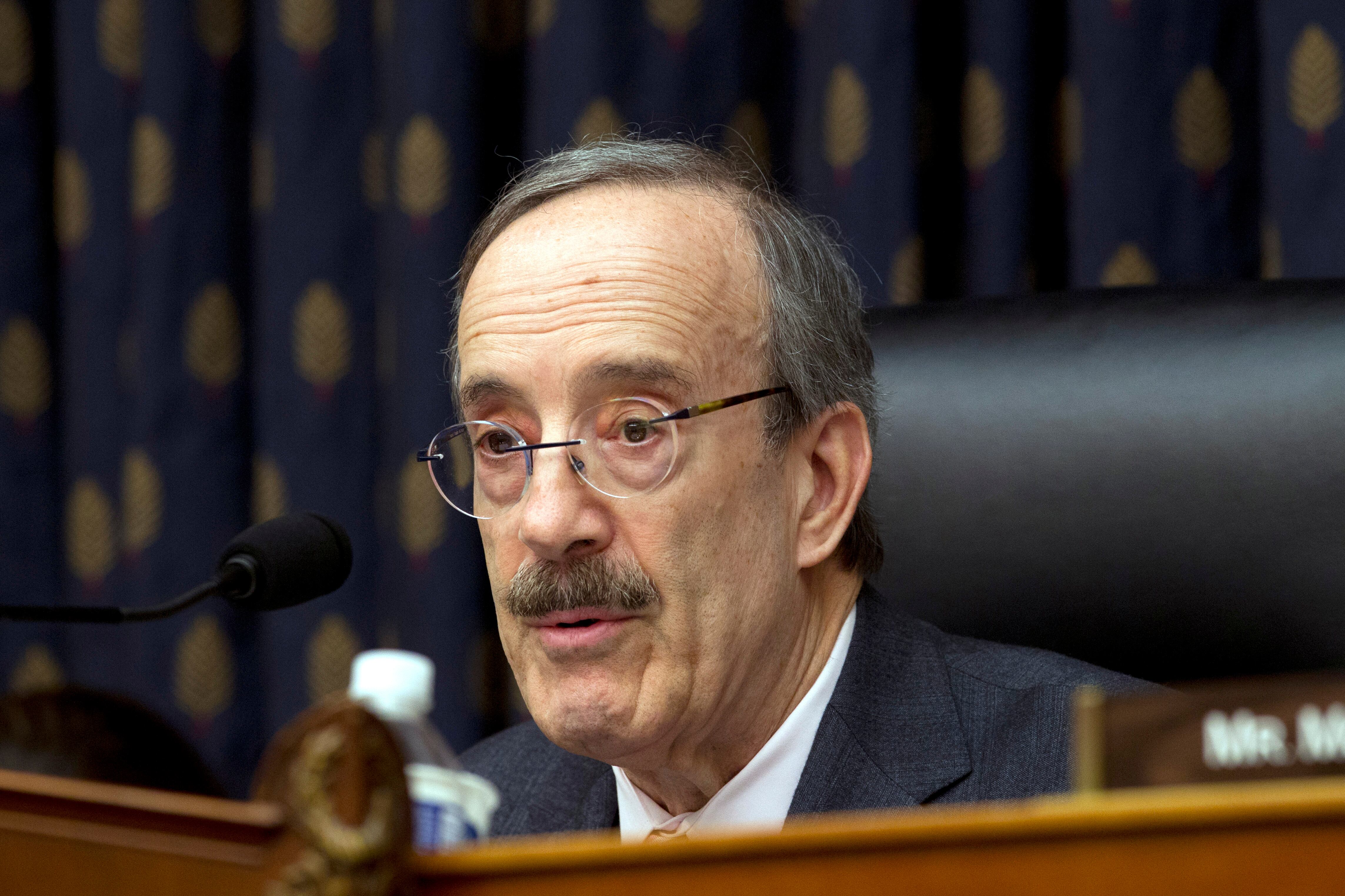WASHINGTON ― The chairmen of the House foreign affairs and intelligence committees are pushing a measure meant to extend the last remaining U.S.-Russia arms control agreement amid fears President Donald Trump will let it lapse.
Led by House Foreign Affairs Committee Chairman Eliot Engel, D-N.Y., the proposal would require congressional approval to increase the nuclear arsenal above the limits of the 2010 New START treaty, if the pact is allowed to expire next year.
The measure was offered as an amendment to the 2021 National Defense Authorization Act, which is set for floor consideration next week. Engel’s amendment was cosponsored by House Intelligence Committee Chairman Adam Schiff, D-Calif., and House Intelligence, Emerging Threats and Capabilities Subcommittee Chairman Jim Langevin, D-R.I.
“This Administration’s recklessness has left New START as the only remaining agreement limiting Russia’s nuclear weapons. Despite the White House’s claims, there’s no ‘better deal’ with Russia and China on the horizon, and the clock on New START is ticking,” Engel said in a statement. “The president doesn’t seem to have a problem with Russia developing more and more nuclear weapons that could strike the United States, so Congress has to do everything we can to keep these protections in place.”
The action came days after Russian Foreign Minister Sergey Lavrov warned he’s not very optimistic about prospects for an extension because of Washington’s focus on making China sign onto the pact. U.S. and Russian envoys held talks last month in Vienna, but Beijing has refused to take part.
Engel’s amendment states that the U.S. should extend the pact for five years, to an expiration date of February 5, 2026, unless Russia is in material breach of the treaty or if it is replaced by a new, stronger agreement. It also provides the executive branch with permission to continue inspection activities and other transparency measures if New START expires on February 5, 2021, assuming that the government of Russia reciprocates these steps

The New START treaty limits each country to no more than 1,550 deployed nuclear warheads and 700 deployed missiles and bombers and envisages sweeping on-site inspections to verify compliance.
The amendment would bar funding to increase the arsenal above the treaty limits unless the president notifies Congress in advance of the new military requirements, certifies that the additional deployments are necessary and justifies the deployments, reports the associated costs and operational implications, and requires that any increase in deployed nuclear weapons is subject to a joint resolution of approval.
It also requires detailed reports on Russian nuclear forces and, with and eye toward potential growth in China’s nuclear arsenal, requires briefings and reports regarding the administration’s arms control approach with Beijing, according to a summary.
It also requires a presidential certification before New START would lapse that this would serve U.S. national security interests, an assessment whether continuing limits on Russian nuclear forces would serve U.S. interests and a plan for how the U.S. military and intelligence communities will address the post-New START environment, including the potential funding and development of additional nuclear deterrence and intelligence requirements.
If Engel’s amendment is accepted by the House Rules Committee and adopted by the House, it would almost certainly invite resistance from hawkish supporters of the president during negotiations to reconcile the House and Senate versions of the NDAA. Senate Armed Services Committee’s Chairman Jim Inhofe, a proponent of nuclear weapons spending, has historically been a skeptic of the treaty.
Kingston Reif, the Arms Control Association’s director for disarmament and threat reduction policy, said the Trump administration doesn’t seem like it will extend New Start and that Congress ought to be putting in roadblocks.
“Crucially, the amendment would require congressional approval to increase the nuclear arsenal above the treaty limits, if the treaty is allowed to expire next year. A decision as consequential as increasing the size of the deployed arsenal, which hasn’t occurred in decades, merits special scrutiny,” Reif said.
After both Moscow and Washington withdrew from the 1987 Intermediate-range Nuclear Forces Treaty last year, New START is the only remaining nuclear arms control deal between the two countries.
Russia has offered its extension without any conditions, while the Trump administration has pushed for a new arms control agreement that would also include China. Moscow has described that idea as unfeasible, pointing at Beijing’s refusal to negotiate any deal that would reduce its much smaller nuclear arsenal.
Trump declared an intention to pull out of the agreement in May, citing Russian violations. Russia denied breaching the pact, which came into force in 2002, and the European Union has urged the U.S. to reconsider.
The Associated Press contributed to this report.
Joe Gould was the senior Pentagon reporter for Defense News, covering the intersection of national security policy, politics and the defense industry. He had previously served as Congress reporter.





